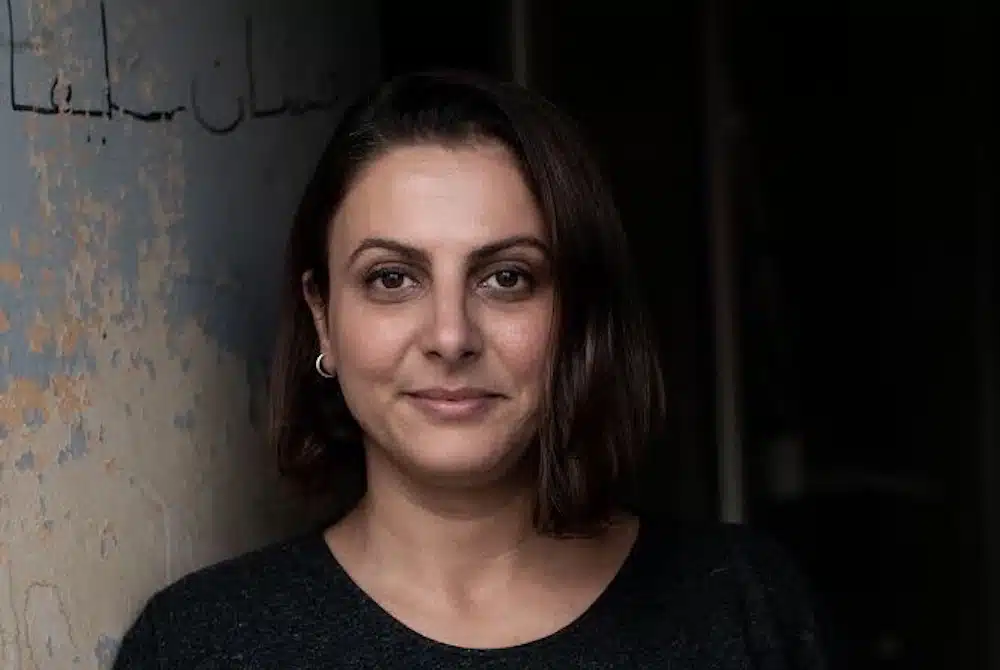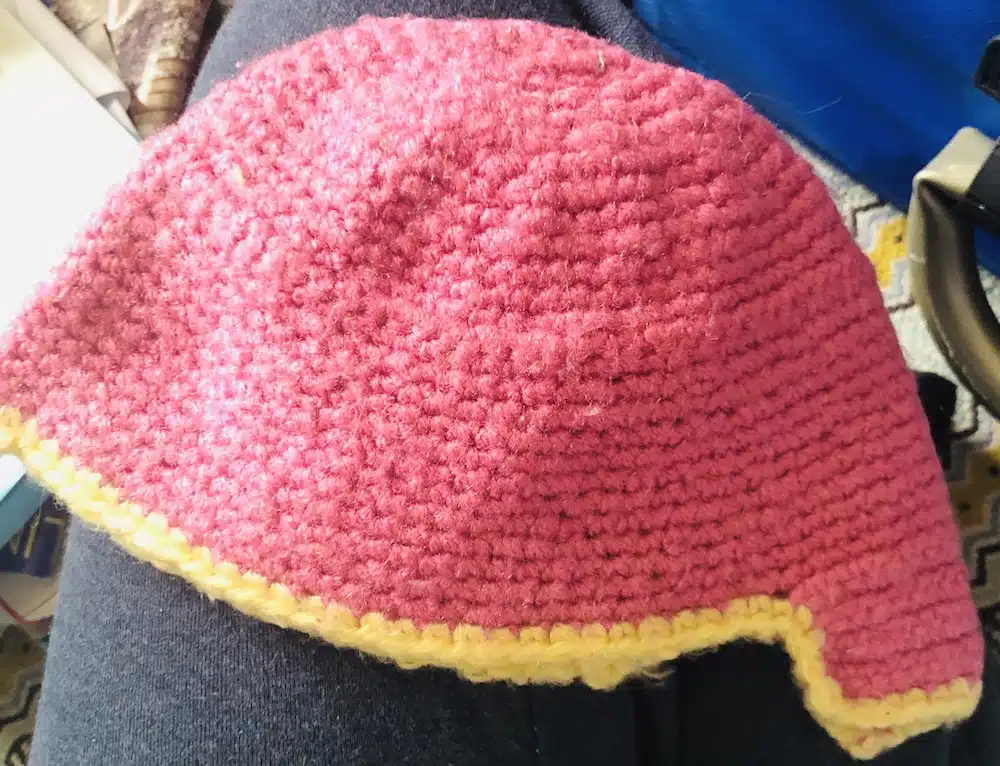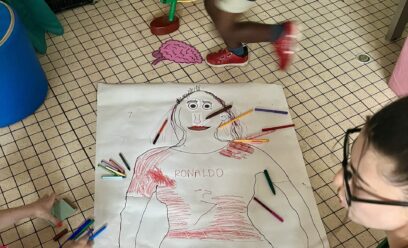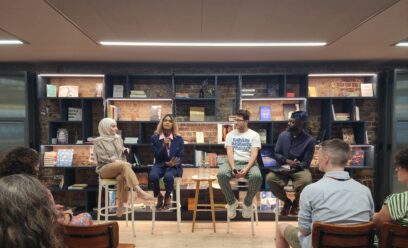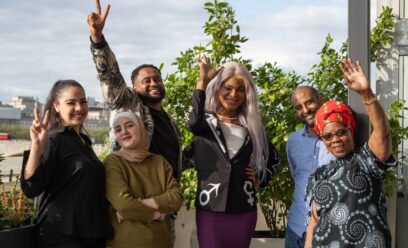‘I walked into my own funeral’
Posted by IMIX on October 17, 2019Taban Shoresh tells her remarkable story of escaping death under Saddam Hussein’s brutal regime, fleeing the bombs of war and seeking safety in the UK.
I’ve been very lucky. I survived death on many occasions. I’ve got no fear in me now. When you have come so close to death or when your family is in danger, you have died and so fear is irrelevant. Even now in unsafe situations, I think, ‘If I am meant to die then I will die’ but as far as I know I am here for a purpose.
I’m from Kurdistan, Northern Iraq and my family was on Saddam Hussein’s most-wanted list. When I was a child, my father was a freedom fighter and poet. Saddam Hussein wanted to remove anyone like him who was active in the Kurdish cause.
One day the secret police turned up at my grandmother’s house where we were living. I was in the garden playing when there was a loud knock on the gates. Two soldiers wanted to take my Mum in for questioning. All the adults were begging the soldiers not to take me because I was only four years old. But the soldiers took me and my mother. When they opened the car doors, my grandparents, were there and had already been captured. They started screaming, begging them not to take me.
They took us all to a prison where they interrogated the adults one by one, trying to get information out of them but no one gave anything away. So they took us to another prison. It was full of Kurdish people, all the Kurds who were part of the uprising. It was an ethnic prison.
After we had been there about two weeks some family names were called out and we were on that list. When we were taken outside, there were buses and diggers in front of them. The adults just screamed and wailed because they knew what was happening. I could see that everyone was really distressed but I didn’t know why. The diggers were to bury people alive. They would dig holes in front of everyone and throw everyone in, then slowly shovel soil on them. It was a form of torture and death. As everyone was herded onto the buses, it became silent and people started praying.
Halfway through driving, the buses stopped. At that time you had Kurdish people working for Saddam’s government but they were also working for Kurds. Some sort of deal was made. When we drove off the doors opened again. The drivers had been switched and these new drivers were Kurdish. They said to us, ‘We’re not going to kill you, we’re here to rescue you but you need to disappear and pretend as if you are dead.’
We went to my Mum’s step-sister’s house. When we walked in everyone was wearing black: they were having our funeral. The message had got to them that we had been buried alive. That same night, my Mum decided we should leave. We went to the South of Iraq, an Arab-populated region to stay with one of her step-brothers as his house was less likely to be searched. I had to stay inside for three months because I didn’t know Arabic and if I spoke Kurdish that would give it away.
We went underground for 12 months moving from village to village, with a network of friends helping us. It was during the Iran and Iraq war so bombs were dropping in the rural areas. Not only were we trying to avoid Saddam’s attacks but also the war. After a year, we were smuggled into Iran but my father stayed behind in Iraq.
Saddam Hussein hired a husband and a wife to poison a group of men – and my father was one of those men. They laid out a massive feast and invited everyone for food. They put poison in a yoghurt drink called Ayran. The men who drank it died on the spot. My dad and three other men had drunk enough to be critically ill so were instantly smuggled into Iran. Amnesty International picked up on his case and flew my father to the UK for medical treatment. He was in hospital for a few months and after a year when he had recovered, we were able to join him.
There was a hat that my grandad gave me in prison. There was this guy in the prison who would make or knit stuff and my grandad had got a hat from him for me. I don’t remember if I wore it but I must have done because it was my size. That’s the only thing I have that has come from that whole journey.
It was my mum who kept me going on that journey. And stories. I remember parts of our journey where we were told we were going to France and they had flavoured yoghurts there! You continue to be children, even though you are in a traumatic situation. You always end up finding ways to play. Not knowing what was going on was probably the main thing that kept us going.
When I arrived in the UK, none of us spoke any English so that was a real barrier. I remember an incident in primary school. I was in the dinner line and this girl turned around and said, ‘Your dad is Saddam Hussein’. I understood enough and was so angry. But I couldn’t retaliate with words because my English wasn’t good enough, so I pushed her. The teacher saw me and told me off. From that moment I never spoke about my past for many, many years. I never really told people where I had come from and what had happened until my adult life.
I also remember lots of kind people. My dad had made friends with this English family who we stayed with in Kent and they started teaching us English. We spent almost every other weekend with them. Six years of Christmasses together! It really helped us to integrate. There was also a boy in my school called Alex who would take the time to show me what the teacher was teaching everyone. I’ll never ever forget that.
Although I have lived in London since we were rescued 30 years ago, the continual plight of the Kurds remains close to my heart. With the events of recent days in north-eastern Syria, I feel like once more my people have been betrayed. The fact that we are staring down the barrel of yet another humanitarian crisis is chilling beyond belief.
In August 2014, I left my city job and decided to go back to Kurdistan, Northern Iraq. I joined a charity there and worked very closely on the frontline. When I came back I couldn’t leave what I had seen again. For me that was a deciding factor in wanting to be able to help the women and girls. They reminded me of my mother, grandmother and myself on that journey. In my life I’ve had a lot of people help me. I wanted to be able to build that bridge and provide the tools needed for women and girls who are impacted by conflict and displacement. That’s why I set up The Lotus Flower. Our centres are a safe haven for women and girls. We give them the tools to be able to start rebuilding their lives.
To someone facing a similar journey, I would say as bad as the situation may seem, stay strong, stay resilient. Hang in there. It’s going to get better. It’s really hard to believe when you’re in the situation but have faith.

